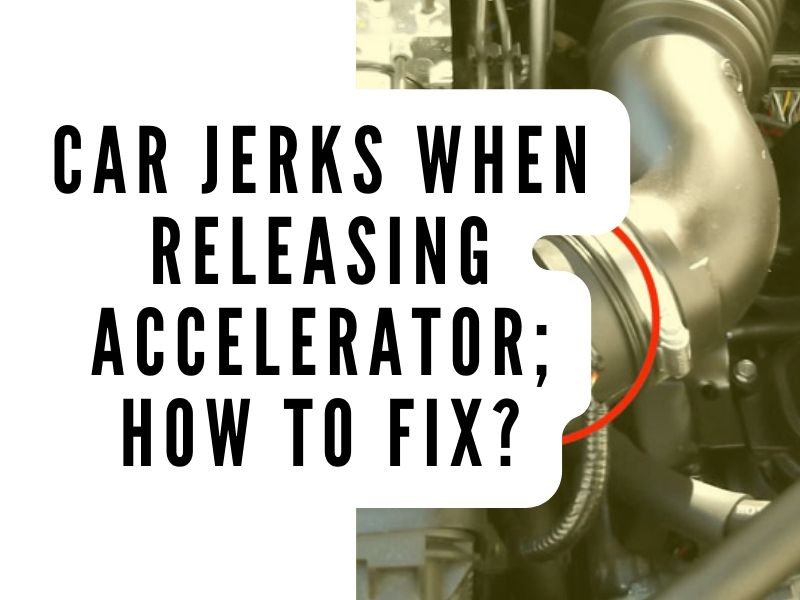Why Does My Car Have Trouble Accelerating

The sinking feeling when you press the accelerator and your car responds with a sluggish crawl instead of a spirited surge of power is a frustrating experience. While a trip to a trusted mechanic is often the best course of action, understanding the underlying causes of poor acceleration can empower you to diagnose the issue, communicate effectively with your mechanic, and potentially even address some simpler problems yourself. This article dives deep into the various systems that contribute to your car's acceleration, explaining how each can falter and lead to performance woes.
Fuel Delivery System: The Engine's Lifeblood
The fuel delivery system is responsible for providing the engine with the correct amount of fuel needed for combustion. Any disruption in this system can severely impact acceleration. Several components play crucial roles:
Fuel Pump
The fuel pump, typically located inside the fuel tank, is responsible for pumping fuel from the tank to the engine. A failing fuel pump might not deliver enough fuel, especially under high-demand situations like acceleration. Symptoms of a weak fuel pump include:
- Difficulty starting the engine
- Stalling, especially under load
- Hesitation during acceleration
- Reduced fuel economy
To diagnose a fuel pump issue, a mechanic can use a fuel pressure gauge to check the pressure at the fuel rail. Low pressure indicates a potential problem with the pump.
Fuel Filter
The fuel filter removes contaminants from the fuel before it reaches the engine. A clogged fuel filter restricts fuel flow, starving the engine during acceleration. Replacing the fuel filter is a relatively inexpensive maintenance item that should be performed regularly according to the manufacturer's recommendations. Ignoring this maintenance can lead to more serious problems.
Fuel Injectors
Fuel injectors are responsible for atomizing and spraying fuel into the engine's cylinders. Clogged or malfunctioning fuel injectors can disrupt the fuel-air mixture, leading to poor combustion and reduced acceleration. Symptoms include:
- Rough idling
- Misfiring
- Poor fuel economy
- Hesitation during acceleration
Fuel injector cleaning services or replacement may be necessary to restore proper function.
Air Intake System: Breathing Easier
The engine needs a sufficient supply of clean air for efficient combustion. Restrictions in the air intake system can significantly reduce power and acceleration.
Air Filter
Similar to the fuel filter, the air filter cleans the air entering the engine. A dirty air filter restricts airflow, limiting the amount of oxygen available for combustion. Replacing the air filter is another simple and inexpensive maintenance task that can improve engine performance.
Mass Airflow Sensor (MAF)
The MAF sensor measures the amount of air entering the engine. This information is crucial for the engine control unit (ECU) to calculate the correct fuel-air mixture. A faulty MAF sensor can provide incorrect readings, leading to an improper fuel-air ratio and poor acceleration. Symptoms include:
- Poor fuel economy
- Rough idling
- Hesitation during acceleration
- Check engine light
Cleaning or replacing the MAF sensor can often resolve this issue.
Throttle Body
The throttle body controls the amount of air entering the engine. A dirty throttle body can restrict airflow, especially at low speeds, leading to poor throttle response and hesitation during acceleration. Cleaning the throttle body can often improve performance.
Ignition System: Sparking the Power
The ignition system is responsible for igniting the fuel-air mixture in the engine's cylinders. A weak or unreliable ignition system can lead to misfires and reduced power.
Spark Plugs
Spark plugs ignite the fuel-air mixture. Worn or fouled spark plugs can produce a weak spark, leading to misfires and poor acceleration. Replacing spark plugs according to the manufacturer's recommendations is essential for optimal engine performance.
Ignition Coils
Ignition coils provide the high voltage needed to create a spark at the spark plugs. A failing ignition coil can cause misfires, especially under load, resulting in poor acceleration. Symptoms include:
- Rough idling
- Misfiring
- Check engine light
A mechanic can use a diagnostic tool to identify which cylinder is misfiring and then test or replace the corresponding ignition coil.
Exhaust System: Letting it Flow
The exhaust system removes exhaust gases from the engine. A clogged exhaust system can restrict the engine's ability to breathe, reducing power and acceleration.
Catalytic Converter
The catalytic converter reduces harmful emissions from the exhaust. A clogged catalytic converter restricts exhaust flow, significantly impacting engine performance. Symptoms include:
- Reduced power
- Poor fuel economy
- Overheating
Replacing a clogged catalytic converter can be an expensive repair.
Other Potential Causes
Beyond the core systems mentioned above, other factors can contribute to poor acceleration:
- Transmission problems: Slipping clutches or faulty torque converters in automatic transmissions can prevent the engine's power from being effectively transferred to the wheels.
- Engine compression: Low engine compression can indicate worn piston rings or valve issues, leading to reduced power.
- Sensors and electronics: Faulty sensors (e.g., oxygen sensors, throttle position sensor) can provide incorrect information to the ECU, leading to improper engine operation.
- Dragging brakes: Brakes that are not fully releasing can create significant drag, hindering acceleration.
In conclusion, diagnosing poor acceleration requires a systematic approach, considering the various systems that contribute to engine performance. By understanding the function of each system and the potential causes of failure, you can better understand your car's condition and communicate effectively with your mechanic. Remember that addressing seemingly minor issues like a dirty air filter or worn spark plugs can often make a significant difference in your car's performance. Regular maintenance is key to preventing many of these problems in the first place.
Don't underestimate the power of a well-maintained vehicle!
